Feeling slightly nervous about going to the dentist is quite common. However, when that nervousness is so severe that it causes someone to postpone or avoid seeing a dentist, that is what we call dental anxiety. As much as 36 percent of the population suffers from dental anxiety, also known as odontophobia.
The good news is that dentists like Dr. Rashti, who has over two decades of experience in treating anxious patients, specialize in easing these fears. Additionally, there are ways to self-soothe before and during dentist visits. In this blog, we’ll go over the causes and symptoms of dental anxiety as well as how to get over the fear of dentist visits.
WHAT IS DENTAL ANXIETY?
Dental anxiety describes a feeling of stress, nervousness, or fear leading up to or during a dentist visit. Anything from making the appointment to being in the dentist’s office can trigger this anxiety. The specific fear can be different for each individual.
Some patients are afraid of pain or uncomfortable around tools like drills and needles. For others, the anxiety stems from a more emotional or social place. For example, some people are scared to go to the dentist because of bad teeth. These individuals often worry their dentist will chastise them for not caring for their teeth better. Others feel that having someone touch their mouth invades their personal space.
There are several possible causes of dental anxiety, including:
- Past negative experiences with a dentist
- Pain during a previous dentist visit
- Past head or neck trauma and sensitivity surrounding these areas
- Co-occurring general anxiety disorder
Dental anxiety and dental phobia are often confused with one another. While they can have similar causes, the two conditions are not interchangeable. Dental phobia can cause extreme panic before or during a dental visit, difficulty breathing, and feeling a total loss of control.
People who suffer from dental anxiety often still go to the dentist, even though it is an uncomfortable experience for them. Alternatively, those with a dental phobia might avoid going to the dentist entirely, and only extreme pain will prompt them to see a medical professional. In many cases, the help of a mental health care professional can help lessen dental phobia.
If you are scared of a dentist but need treatment, it could be time to find a different practitioner. Not every dentist takes dental anxiety seriously, so it’s essential to find one who recognizes how debilitating the condition can be and incorporates soothing techniques into your treatment plan.
Working with a compassionate and understanding dentist like Dr. Rashti can significantly ease your anxiety. Together, you can discuss your triggers and devise techniques tailored to you that make dentist visits a more pleasant experience.
SYMPTOMS OF DENTAL ANXIETY
Recognizing the symptoms of dental anxiety can help you determine if you suffer from it. From there, you can work with your dentist to create a dental anxiety management plan appropriate for your situation. Below are common symptoms of dental anxiety:
- Feeling faint or fainting
- Sweating
- Heart palpitations
- Becoming irritable with your dentist
- Shortness of breath
Sometimes, the symptoms begin before you arrive at the dentist’s office. For example, you might find excuses to cancel your appointment or have difficulty sleeping the night before.
THE IMPACT OF DENTAL ANXIETY ON ORAL HEALTH
While the symptoms associated with dental anxiety are unpleasant, the consequences of avoiding the dentist can be severe. When patients avoid routine cleanings and exams, they miss crucial preventative care. That can cause mild issues to become major ones, ultimately calling for more invasive and, in some cases, emergency procedures. Unfortunately, such methods are more costly and uncomfortable than preventative care. So, this series of events can perpetuate the cycle of dental anxiety.
It’s also important to remember that your oral health is a part of your total health. Your mouth connects to other systems in your body, including your digestive tract and lungs. So, allowing oral health issues to progress can put you at risk of different problems. Research shows a correlation between periodontal disease and systemic diseases like cardiovascular disease, diabetes, Alzheimer’s, and pregnancy complications.
At MR Dental Aesthetics, we are passionate about educating our patients on the link between oral health and overall health. So, how do you get over dental anxiety? It helps to see a dentist dedicated to treating patients in a safe, welcoming space. We’re not just setting them up for better oral health — we’re helping them develop a better total well-being for life.
HOW TO GET OVER DENTAL ANXIETY: TIPS TO BREAK THE CYCLE
You don’t have to live with dental fear and anxiety forever. While it can feel challenging at first, getting control over your dental anxiety can set you up for a lifetime of more pleasant dentist visits and a greater willingness to seek the treatment you require. If you’re headed to the dentist, the anxiety tips and techniques outlined here can help alleviate your anxiety.
- Find a Supportive Dentist
Finding a dentist specializing in dealing with dental anxiety can make a big difference. Dr. Rashti understands how challenging it can be to get the treatment you need for this condition. In your first appointment, you will discuss your overall dental health and history, including your feelings about going to the dentist. If Dr. Rashti determines that you have dental anxiety, she will create a treatment plan that incorporates soothing techniques.
- Communicate Your Fears
If you struggle with dental anxiety, discuss it openly with your dentist during your initial consultation. This conversation will give you the opportunity to identify specific triggers and allow your dentist to tailor the treatment approach, ensuring a comfortable and supportive experience. Your dentist is there to help and can devise strategies that accommodate your needs.
Some patients find it helpful to create a “stop hand signal.” You can signify if the pain or discomfort is intolerable during a procedure and you need to take a break.
- Use Relaxation Techniques
Incorporating relaxation techniques that calm your nerves and take your mind off what’s happening can be helpful. Some patients do breathing exercises before or even during dental procedures. Going through a rhythmic breathing pattern takes your attention away from the dental work and focuses it on the breath. Some anxious patients bring headphones and listen to relaxing music or a guided meditation. Sometimes, simply squeezing a stress ball can be helpful.
- Try Cognitive Behavioral Therapy
Cognitive behavior therapy (CBT) is a form of therapy that focuses on challenging and changing thought patterns. The core principle of CBT is that you have the power to control your thoughts.
The first step is recognizing those anxious thoughts as they arise. These might include thoughts like, “I had one painful dentist experience in the past, so they must all be bad,” or “My dentist is going to ridicule me, and I’m going to feel stuck.”
The next step is challenging those thoughts by swapping in new ones. Examples might be “Just because one experience was painful doesn’t mean they all will be” and “If I don’t feel my dentist is compassionate, I can leave and find a new one. I’m in control.”
- Consider Sedation if Necessary
If the above-listed techniques do not work to alleviate dental anxiety, sedation might be necessary. However, this is a last resort when an emergency procedure is needed or a patient behaves disruptively if unsedated during treatments. Ideally, you’ll work together with your dentist to ease anxiety without the use of sedatives.
There are several sedation options, ranging from mild to heavy. Your dentist can offer you a mixture of nitrous oxide and oxygen at your appointment, known as “laughing gas.” It takes effect almost immediately and puts you in a relaxed state while you’re still awake.
Some patients may be prescribed an oral anxiety-relieving medication to take in small doses about one hour before their appointment. In more severe cases, general anesthesia may be required, which involves going under complete sedation. This level of sedation typically requires advanced preparation and, depending on the complexity of the dental procedure, may require a hospital setting due to the need for IV equipment. For less invasive procedures, local anesthesia, which numbs only the area being treated, is commonly used right in the dentist’s office.
TAKE CONTROL OF YOUR DENTAL HEALTH AT MR DENTAL AESTHETICS
At MR Dental Aesthetics, your comfort and well-being are our highest priorities. Dr. Rashti takes the time to understand your concerns and tailor a strategy specifically designed to ease any dental anxiety you may experience throughout your treatment. As the only dentist overseeing your care from start to finish, she ensures a consistent, private, and respectful experience, providing reassurance every step of the way.
Dr. Rashti is dedicated to crafting not just a smile you’ll love but also to cultivating lasting habits that benefit both your oral and overall health. She prioritizes assessing and improving your oral health and function before moving on to cosmetic enhancements. Overcoming dental anxiety is a key component of her comprehensive approach.
If you’re ready to work with a Beverly Hills cosmetic dentist who values both aesthetics and comprehensive health, book an appointment with Dr. Rashti at MR Dental Aesthetics today. Contact us to take your oral health to the next level!

